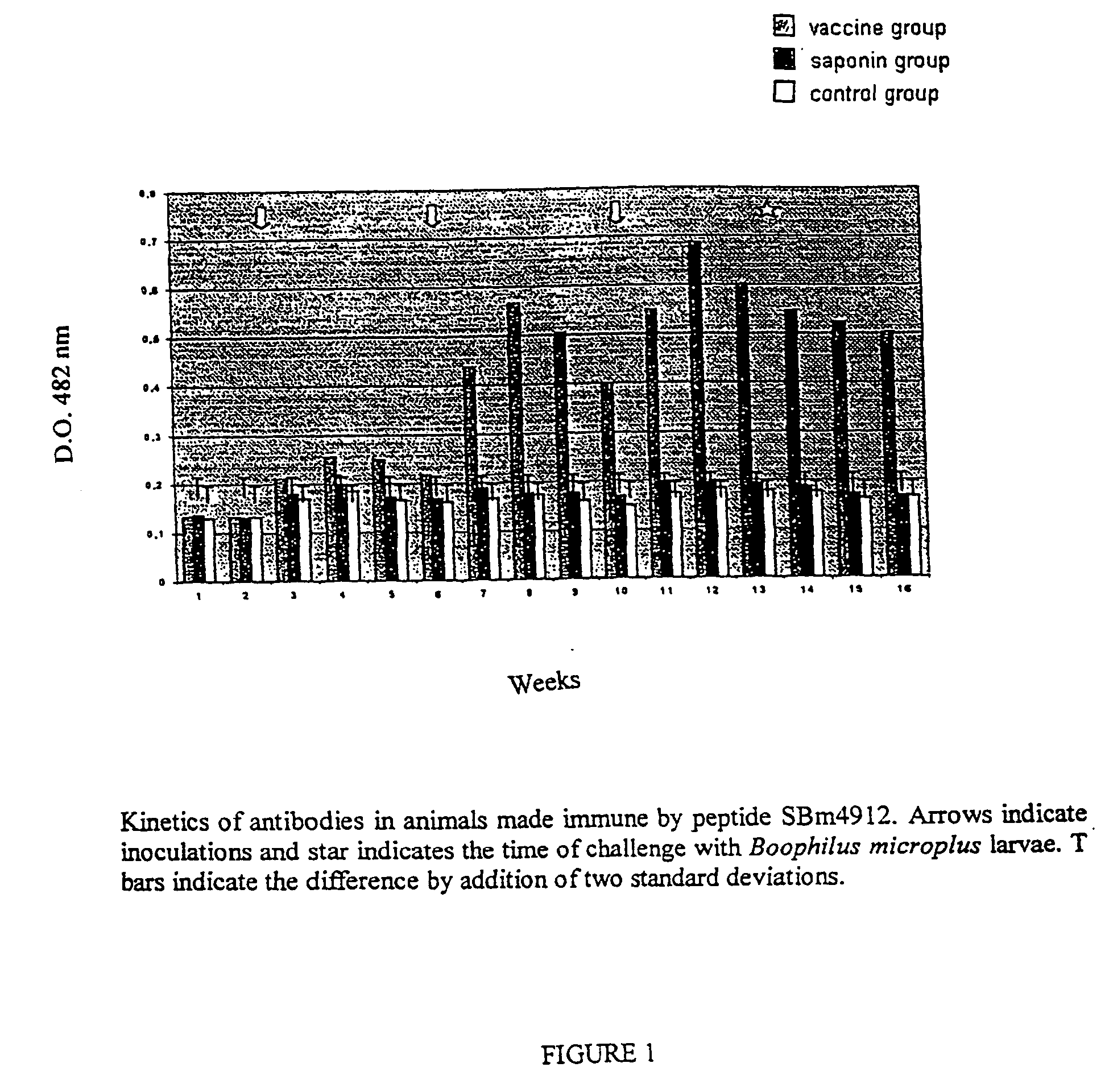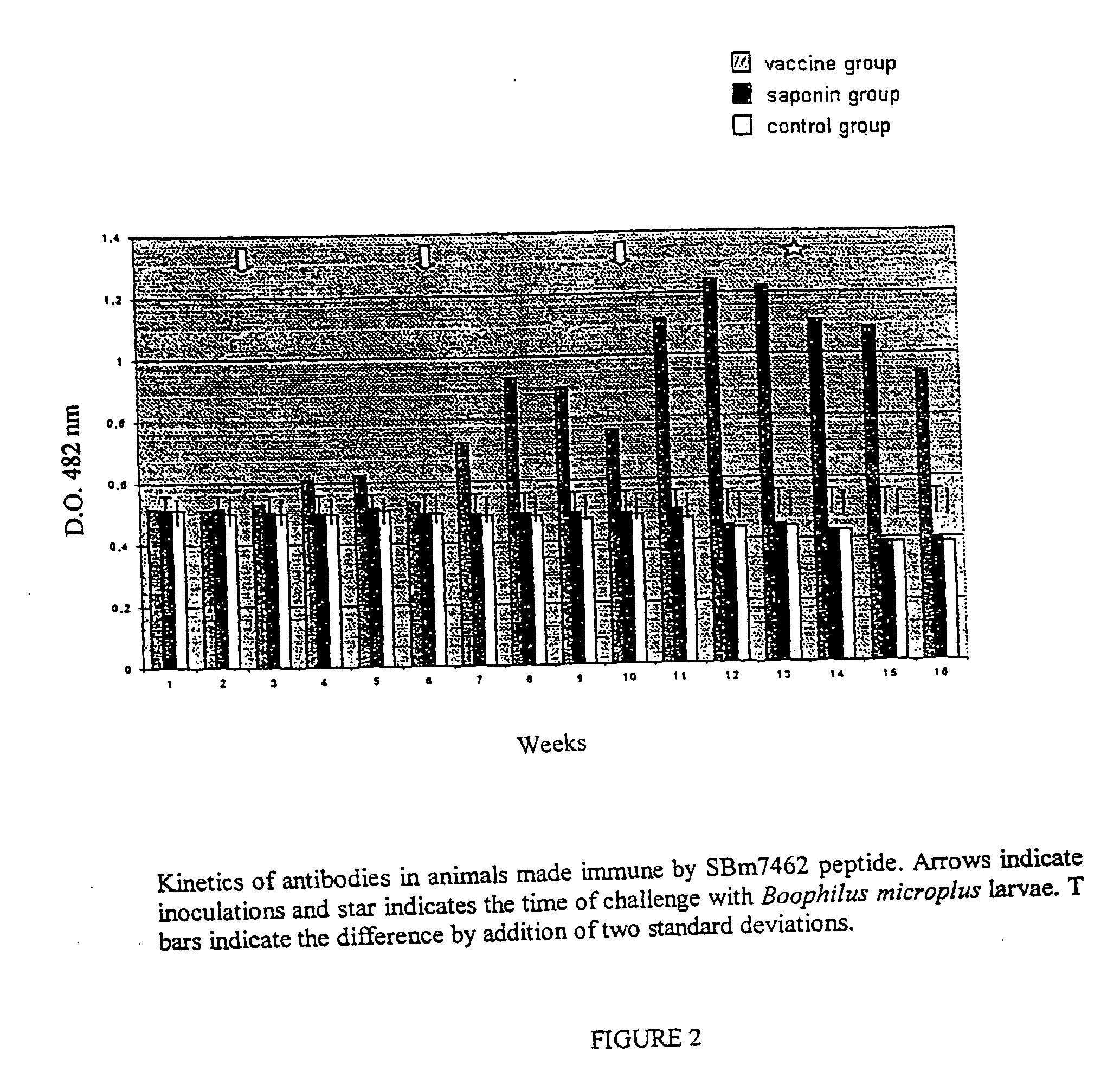Synthetic vaccine for tick control
a synthetic vaccine and tick technology, applied in the field of protein biotechnology and immunology, can solve the problems of loss of production, adversely affecting the value of the hide, hypersensibility reaction,
- Summary
- Abstract
- Description
- Claims
- Application Information
AI Technical Summary
Benefits of technology
Problems solved by technology
Method used
Image
Examples
Embodiment Construction
[0027] The peptides were formed having in view the structure of the Bm86 protein. The choice of these peptides within the structure of the integrate protein has been based on studies of computer prediction of immunogenic sites based on the protein properties, such as being antigenetic (HOOP and WOODS, 1981, Proceedings of the National Academy of Science, U.S.A. 78:3824-3828), potential of alpha and beta helixes and Beta Sheet (CHOU and FASMAN, 1978, Advances of Enzymology of Relative Areas in Molecular Biology 47:45-148), hydrophobicity and hydrophilic properties (KYTE and DOOLITTLE, 1982, Journal of Molecular Biology 157:105-132).
[0028] The synthesis was made in accordance with a known technique as described in (MERRIFIELD 1963, Journal of the American Chemistry Society 85: 2149). The methodology employed was the Good Manufacture Procedure (GMP), where a solid support is employed, in our case resin MBH4 (4-methylbenzidrilamine) with a substitution coefficient of 0.49 meq / g, weighe...
PUM
| Property | Measurement | Unit |
|---|---|---|
| weight | aaaaa | aaaaa |
| loss of weight | aaaaa | aaaaa |
| weight | aaaaa | aaaaa |
Abstract
Description
Claims
Application Information
 Login to View More
Login to View More - R&D
- Intellectual Property
- Life Sciences
- Materials
- Tech Scout
- Unparalleled Data Quality
- Higher Quality Content
- 60% Fewer Hallucinations
Browse by: Latest US Patents, China's latest patents, Technical Efficacy Thesaurus, Application Domain, Technology Topic, Popular Technical Reports.
© 2025 PatSnap. All rights reserved.Legal|Privacy policy|Modern Slavery Act Transparency Statement|Sitemap|About US| Contact US: help@patsnap.com


